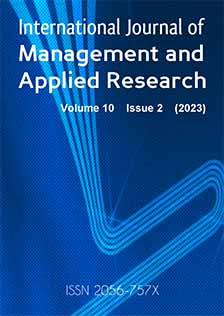Theoretically Rich Design Thinking: Blended Approaches for Educational Technology Workshops
Theoretically Rich Design Thinking: Blended Approaches for Educational Technology Workshops
Author(s): Howard ScottSubject(s): Education, Adult Education, Higher Education , ICT Information and Communications Technologies, Inclusive Education / Inclusion, Distance learning / e-learning, Pedagogy
Published by: New Millennium Discoveries Ltd
Keywords: Participatory Workshop; Continual Professional Development; Curriculum Design; Subtractive Change; Artificial Intelligence;
Summary/Abstract: This paper is a reflective account that outlines the design of two Continual Professional Development (CPD) workshop sessions based on a blend of theory for design thinking about aspects of curriculum, pedagogy and technology. The theoretical approach blended aspects of design-based research, speculative design, Activity Theory and subtractive change to address issues, barriers and explore opportunities in each workshop example that is presented. The first of these workshops brought university engineering lecturers together to explore the opportunities and barriers for integrating ‘co-creation’ as a pedagogical strategy to subject teaching alongside a new interface into their curriculum. The results show how design thinking exposes limitations and challenges that prevent the realisation of pedagogically rich interventions. The second workshop brought together post-compulsory vocational lecturers to a teacher education workshop and used the same theoretical reference points to inform and antagonise the implications that Large Language Models, such as Chat GPT, present to subject knowledge, curriculum design and modes of assessment. Here these theoretically rich forms are proposed for planning use in learning design and for reshaping curricula, where academics and other professionals supporting teaching and learning may want to introduce new technologies and integrate innovative pedagogical methods or confront new challenges to their work. They may also be used as continual professional development sessions in highly participatory, practical and creative ways that allow for lucid experimentation and to imbue professionals with agency and trust.
Journal: International Journal of Management and Applied Research
- Issue Year: 10/2023
- Issue No: 2
- Page Range: 298-313
- Page Count: 16
- Language: English

